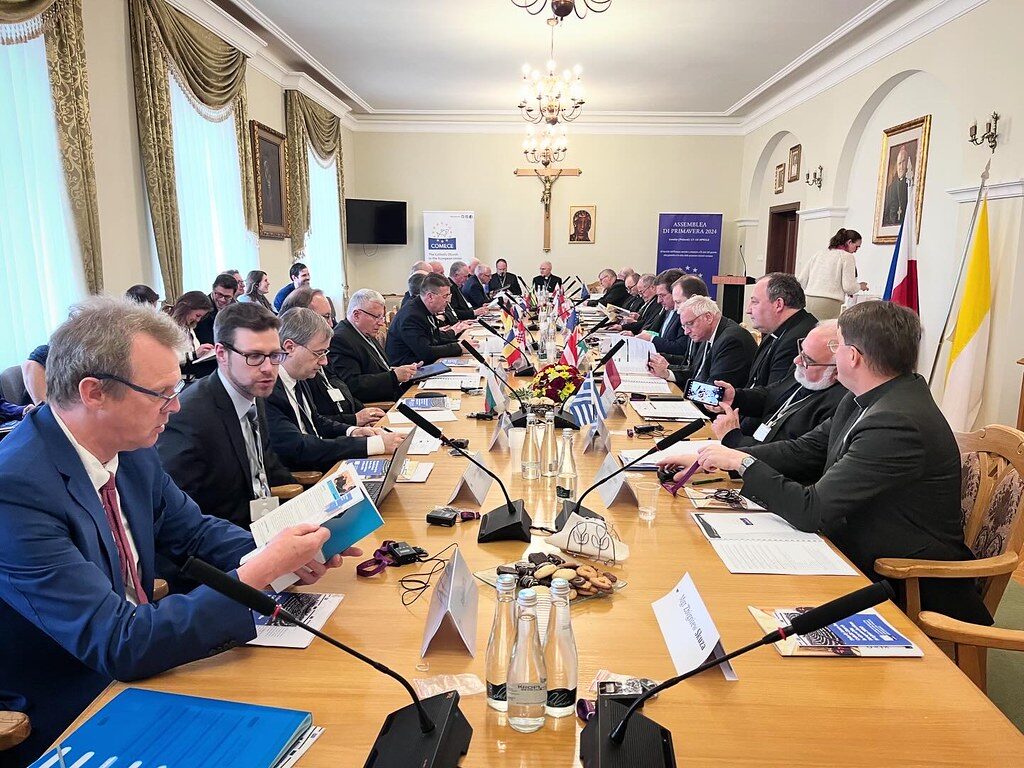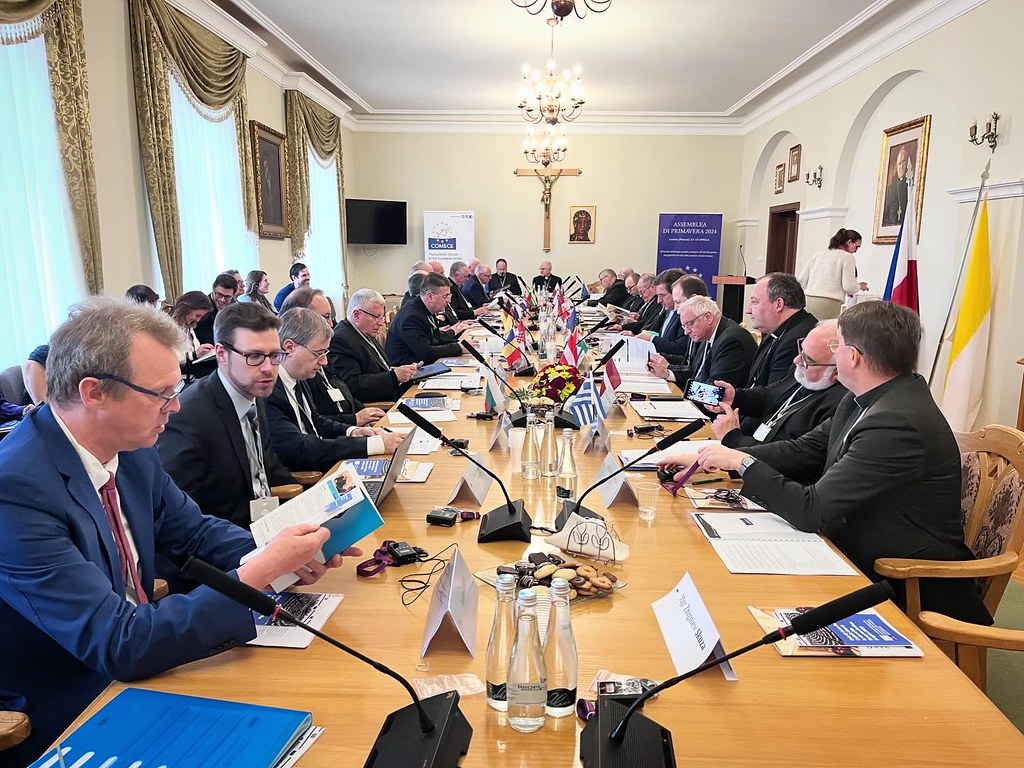
The Commission of the Bishops’ Conferences of the European Union (COMECE) has underlined the importance of future EU expansion as a beacon of hope for citizens aspiring to live in peace and justice.
Gathered in Łomża, Poland, for the Spring Assembly, COMECE bishops, including Auxiliary Bishop Joseph Galea-Curmi representing the Maltese Episcopal Conference, underscored the theme “Let us continue to build Europe together.”
Marking the 20th anniversary of the significant enlargement of the European Union in 2004, which included Malta’s membership, the bishops voiced their support for potential future enlargements. They see such expansions not only as a geopolitical necessity for stability but also as a message of hope for citizens yearning for peace and justice.
Against the backdrop of Russia’s aggression in Ukraine, the bishops highlighted the need for new partnerships within the Union, particularly with countries in the Balkans and Eastern Europe.
In their statement, the bishops stressed the imperative to reevaluate governance structures to ensure timely and effective action. They urged consideration of the impact of budgetary arrangements and policies on vulnerable members of society in both current and prospective EU member states.
The call for justice and peace comes at a crucial juncture for the European Union as it navigates accession efforts amidst geopolitical challenges.
Currently, nine countries are in the EU’s formal accession process, each with unique circumstances and obstacles to overcome:
- Albania, grappling with political instability and tensions with neighbouring Greece.
- Bosnia and Herzegovina, making progress in combating corruption but facing challenges with separatist movements.
- Georgia, a former Soviet republic partially occupied by Russian troops, demonstrating strong public support for EU membership despite ongoing conflicts.
- Montenegro, striving to accelerate reforms and secure EU membership by 2028.
- Moldova, balancing between EU alignment and Russian influence, with accession talks complicated by the presence of Russian troops.
- North Macedonia, addressing longstanding disputes over its name and language, hindering progress in accession negotiations.
- Serbia, facing hurdles in normalizing relations with Kosovo and addressing irregularities in recent elections.
- Turkey, stalled in its accession process since 2018 due to concerns over the rule of law and human rights.
- Ukraine, seeking EU membership amid ongoing conflict with Russia, presenting unprecedented challenges for the accession process.
Source: Newsbook.com.mt





